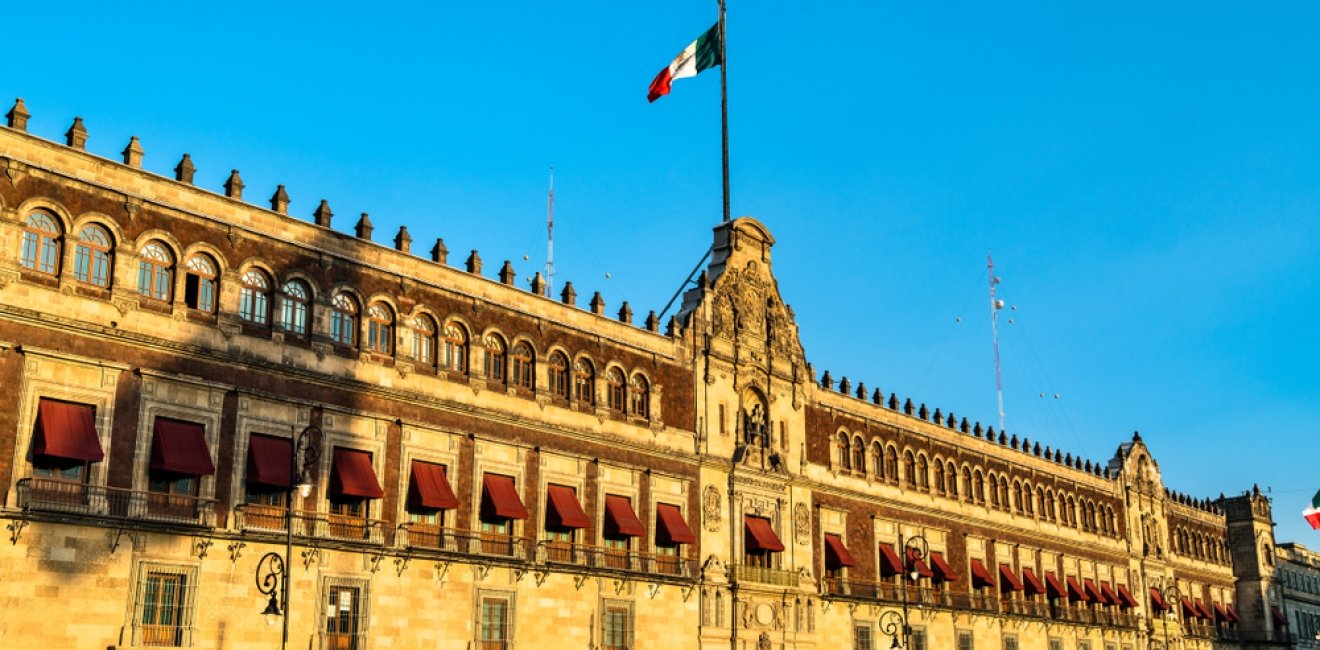
A blog of the Latin America Program
President Andrés Manuel López Obrador’s (AMLO) political party, the Movimiento de Regeneración Nacional, or Morena, won the governor’s race in the State of Mexico in June, snatching control of the most populous state from the Institutional Revolutionary Party (PRI), which had ruled it since 1929. The victory of Delfina Gómez, the first woman to govern the state, extended the governing party’s control to 23 out of 32 states. When López Obrador began his term in 2018, Morena only controlled seven states. Importantly, the victory in the State of Mexico also provided momentum to the president’s party ahead of the 2024 presidential election.
The victory of Delfina Gómez, the first woman to govern the state, extended the governing party’s control to 23 out of 32 states.”
The State of Mexico is a jewel in Mexico’s electoral landscape. It is home to over 12 million voters and is both an economic and electoral powerhouse. Traditionally, the party that wins the governor’s race in the State of Mexico also wins the presidential contest. The once hegemonic PRI is down but not out. Its candidate in Coahuila, for example, Manolo Jiménez, won the governorship, capturing more than double the votes of the second-place finisher. Still, the loss in the State of Mexico was a blow the PRI and raised questions about its ability to counterbalance Morena.
Breaking Away
Following the PRI’s loss in the State of Mexico, the party’s prospects have dimmed further. Recently, four prominent PRI senators — including a former governor of the State of Mexico — and hundreds of other party members resigned from the party, citing strong differences with the party’s president, Alejandro “Alito” Moreno. The PRI struggles could have a major impact on the Va por México alliance — made up of the National Action Party (PAN), the PRI, and the Democratic Revolution Party (PRD). The coalition hopes to designate a single candidate to compete against Morena for the presidency and for control of Congress.
Another factor is the high abstention rates in recent regional elections. In the State of Mexico and Coahuila, the abstention rate exceeded 40 percent, significantly higher than in past years. That has raised questions about whether the opposition can match Morena’s capacity to mobilize supporters for the national elections.
Amid voter frustration with traditional politics, Morena has begun to resemble the single-party rule of the PRI.”
Hegemonic Control
Nearly everywhere in Latin America, perhaps except Paraguay, recent elections have gone poorly for incumbents. That sentiment was clear in Mexico’s midterm elections in 2021; though AMLO retained remarkably high approval ratings, Morena lost control of the lower house of congress. Amid voter frustration with traditional politics, Morena has begun to resemble the single-party rule of the PRI. Yet AMLO continues to promote his party as Mexico’s only alternative to what he describes as the country’s corrupt and neoliberal traditional parties. So far, that strategy is working. The latest polls favor Morena to win the 2024 presidential election.
An Unexpected Contender
Lately, however, the dynamics of the election have changed, with the surprise emergence of a new opposition candidate: Xóchitl Gálvez, a 60-year-old indigenous PAN senator with a compelling personal story and a blazing personality.
Since announcing her candidacy for the Frente Amplio por México in June, Gálvez has emerged as the opposition frontrunner. Perhaps the clearest sign of her rising profile are the escalating attacks against her by AMLO during his morning press conferences, attempts to discredit her personally and professionally. Notably, the president’s remarks have only boosted her approval rating and raised her profile nationally.
Born in the state of Hidalgo to an alcoholic and abusive father, Xóchitl sold pudding on the street to make ends meet. Today, she is a seasoned politician, having served as the head of the National Institute of Indigenous Peoples under the Vicente Fox administration and run unsuccessfully to become Hidalgo’s governor. A former mayor of Miguel Hidalgo, a wealthy county of Mexico City, Xóchitl became senator in 2018.
Gálvez leads her rivals within the opposition coalition by 40 percentage points, and is tied nationally with Claudia Sheinbaum, former Mexico City mayor and AMLO’s favored candidate.”
Gálvez is not yet the opposition’s unity candidate; the coalition will make that decision next month. Already, however, she has shown a unique ability to energize diverse blocs of voters on issues crucial to the future of Mexico, including Mexicans once considered out of reach for the opposition. According to a recent poll by México Elige, Gálvez leads her rivals within the opposition coalition by 40 percentage points, and is tied nationally with Claudia Sheinbaum, former Mexico City mayor and AMLO’s favored candidate. While there are still ten months until the election, a race that was once seemed uncompetitive appears to be up for grabs.
Morena must also select its presidential candidate, and AMLO has not yet picked his favorite between Sheinbaum and AMLO’s former foreign minister, Marcelo Ebrard. Before Xóchitl entered the race, analysts expected AMLO to endorse Sheinbaum. But Xóchitl’s emergence might change his calculation. Many observers argue that Ebrard, a more moderate figure than Sheinbaum, is better positioned to take on Gálvez, as he could appeal both to voters loyal to AMLO’s Fourth Transformation and those dissatisfied with Morena’s performance over AMLO’s six-year term.
Ultimately, AMLO’s favored candidate will doubtlessly emerge victorious in the Morena primary. The president, however, will have to work far harder to get his way in the general election.
Author


Latin America Program
The Wilson Center’s prestigious Latin America Program provides non-partisan expertise to a broad community of decision makers in the United States and Latin America on critical policy issues facing the Hemisphere. The Program provides insightful and actionable research for policymakers, private sector leaders, journalists, and public intellectuals in the United States and Latin America. To bridge the gap between scholarship and policy action, it fosters new inquiry, sponsors high-level public and private meetings among multiple stakeholders, and explores policy options to improve outcomes for citizens throughout the Americas. Drawing on the Wilson Center’s strength as the nation’s key non-partisan policy forum, the Program serves as a trusted source of analysis and a vital point of contact between the worlds of scholarship and action. Read more


Mexico Institute
The Mexico Institute seeks to improve understanding, communication, and cooperation between Mexico and the United States by promoting original research, encouraging public discussion, and proposing policy options for enhancing the bilateral relationship. A binational Advisory Board, chaired by Luis Téllez and Earl Anthony Wayne, oversees the work of the Mexico Institute. Read more

Explore More in Weekly Asado
Browse Weekly Asado
Dengue Haunts South America’s Summers

Lessons from Costa Rica’s Economic Transformation

Women and Latin America’s Digital Revolution

